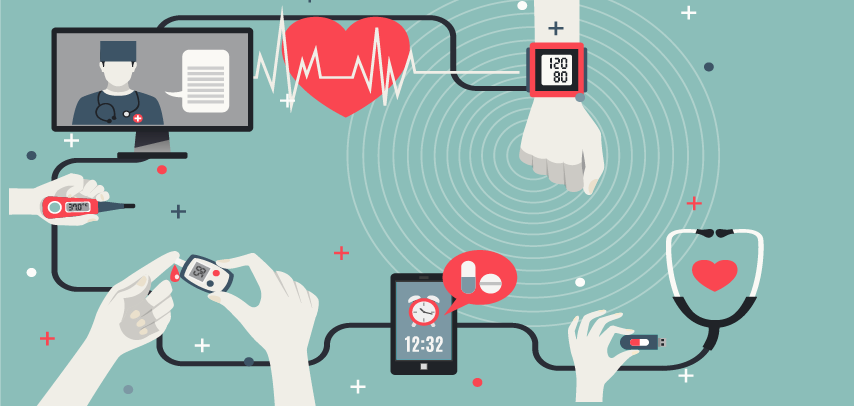Precision Medicine – A Deep Dive into Personalized Therapy & Treatment

For the healthcare ecosystem across the world, the underlying purpose has always been to fight & eradicate illnesses in the shortest amount of time hence corelating with minimal pain, suffering or stress for the patients involved. Rapid technological advancements in the 21st century have meant that a humongous amount of clinical data and testing methods required to analyse it, exist during the same period. This has subsequently allowed for the emergence of ‘Precision Medicine’.
Also referred to as Personalized Medicine, it is an innovative approach towards medicinal care.
By utilizing the entire spectrum of an individual’s medical profile, namely genetic make-up, comprehensive medical history of ailments, lifestyle & environmental factors, doctors aim to tailor a unique course of treatment which is most beneficial for said patient.
Doing so empowers doctors and gives them the ability to diagnose, NOT based off a general understanding of symptoms and disease but advise a form of therapy which has the largest likelihood of success and a minimal chance of adverse side effects for that specific patient.
Why was this approach not implemented earlier?
Advances in medical testing have paved the way for availability of vast chunks of medical data which includes genetic mapping. Understanding the influence genes hold on a person’s health has been the key to unlocking forms of therapy best suited for that person.
Hence, the arrival of technologies such as Artificial Intelligence, Machine Learning & Big Data Analytics along with the computing power required to process & analyse large amounts of information has been the reason why Precision Medicine is now achievable and is not simply some novel, hypothetical form of treatment of the future.
Aim & Goal:
- Development of more efficient medicines improving overall patient outcomes.
- Lower costs of treatment due to misdiagnosis and/or
ineffective drugs and treatment.
Inherent Benefits of Precision Medicine:
- Shifting from a reactive to preventive form
of medicine. Through genetic screening, doctors can identify certain
biomarkers or genes which indicate the possibility of specific disease in the
future and subsequently work on preventing the same from occurring. This shall
help transition from our current procedure where most diseases are detected after
having reached an advanced stage.
- Doctors essentially make well educated guesses
when advising a form of treatment. In most cases, initial treatments or drugs
do not have the desire effect and only on the 2nd or 3rd
attempt is the correct course of therapy identified. Understanding the presence
of certain biomarkers will lead to accurate discovery of the illness and the most
effective form of treatment can then be administered for the patient as per
their genetic make-up removing any requirement for trial-and-error.
- Segueing into our next benefit, some drugs have
the tendency or potential to cause adverse side effects which can be extremely harmful
for patients. Accurate prescription of medicines will help avoid unnecessary pain.
- Targeted or personalized therapy reduces the
cost of care for patients as multiple courses of treatment will not be
required. Furthermore, strives are being made for to primarily prevent diseases
and ailments, the cost of which is sufficiently less than actually battling a
disease.
- By studying genetic pattens of a population as a
whole and in sub-sets, important insights can be drawn, helping to understand how
underlying genes, living conditions and environmental factors can make certain
people prone to certain illnesses, once again allowing for early detection or
avoidance.
Potential Roadblocks & Drawbacks:
- For
precision medicine to reach its full potential, extremely large amounts of
genomic data must be collected, stored and analysed. Being fully aware of the possibilities
of privacy leaks in today’s world, the unbelievable risk of genomic data in the
hands of the wrong individual or group can have major implications and therefore
the legal boundaries of such data collection will have to be explored and regulated.
- Huge infrastructure demands will need to be met as
the machinery & technology required is quite advanced. This means that a
large amount of investment needs to be made either by governments, hospitals or
taxpayers. It is still quite unclear how the field will progress in regard to a
continuous flow of investment for research and development of such targeted
forms of therapy.
- Personalized & tailored treatments usually
cost more than the generic course of action. Initially and until widespread
adoption averages out costs, this could mean that a large portion of the population
may not be able to afford such state-of-the-art therapies.
- During the process of profiling sections, demographics and a region’s population as a whole, if certain subsets are missed out, it could lead to a missing piece of the puzzle for researchers and doctors alike.
To discover the latest innovations, trends, disruptions & opportunities relating to Precision Medicine, EXPLORE – MARKETSANDMARKETS PRECISION MEDICINE CONFERENCE scheduled for the 6th– 7th of October 2022 in London, UK!
REGISTER FOR THE CONFERENCE HERE!
Ayush Kanitkar
MarketsandMarkets
+91-8975985061








